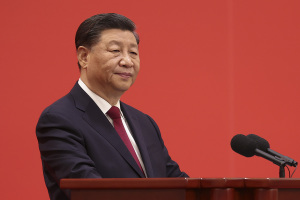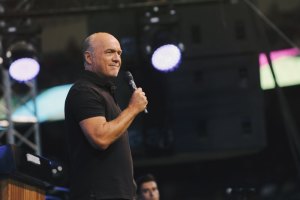Gingrich Was Hired by Freddie Mac to Improve Relations With Congress
Freddie Mac Bets Against Homeowners
Presidential candidate Newt Gingrich was hired by Freddie Mac as part of a strategy to improve relations with Congress. Recently, investigators discovered that Freddie Mac has been, through its investments, betting against the homeowners whom it is supposed to help.
In 1999, Freddie Mac, a corporation created by the federal government, along with Fannie Mae, to provide financial backing for home loans and increase home ownership, hired Mitchell Delk as its chief lobbyist. Delk then embarked on a strategy to build support for the company with Republicans in Congress, according to a 2003 investigation by the Federal Election Commission uncovered by Reuters.
Republicans were raising concerns about Freddie and Fannie at the time and were introducing legislation that would have lowered the company's profits.
Fannie and Freddie are widely believed to have been at the center of the housing bubble that crashed in 2008 and precipitated the current economic recession. They went bankrupt in 2008 and were taken over by the U.S. government.
Gingrich has come under scrutiny, in particular by fellow presidential candidate Mitt Romney, for his consulting work for the company.
Gingrich has said that he was never a lobbyist for the company, which is confirmed by at least two of his contracts with the company released by the Gingrich campaign. Romney has accused him of being an "influence peddler" for the company, meaning that he promoted the goals of the company through his relationships with members of Congress.
Delk hired several other former Republican members of Congress around the same time that he hired Gingrich. Vin Weber, who was one of those hired and now supports Romney, said, in an interview with Reuters, that Freddie Mac's strategy was to "create a positive buzz" about the company among Republicans. Gingrich's stature, as someone who led the party to victory in the 1994 elections and was speaker of the House, can do that for the company without direct lobbying, Weber stressed.
Fellow candidate Rick Santorum defended Gingrich's consulting work in a Tuesday speech, saying that companies have the right, under the First Amendment, to have someone represent their interests before government, and there is nothing wrong with Gingrich using the skills he has to provide that representation.
"Speaker Gingrich, you went out and you took the talents that you have, ... and went out and worked with companies ... . And I congratulate you for the work that you did in support of those companies that deserved representation as they are entitled to under the First Amendment of our Constitution. I'm not going to criticize you for that."
Freddie Mac has come under greater scrutiny this week after an investigation co-conducted by Pro Publica and NPR News revealed that the company has been investing in securities that perform better when homeowners do not refinance their mortgages. At the same time it was making these investments, the company discouraged refinancing by increasing the fees that homeowners must pay when they refinance and implementing rules that make some homeowners ineligible to refinance.
Members of Congress expressed outrage after the story broke.
Sen. Robert Casey, Jr. (D-Penn.) sent a letter to President Barack Obama saying, "I ask you to put an end to these practices immediately and ensure that the investment decisions made by Freddie Mac are in line with the intent of Congress and the greater needs of our economy."
White House spokesperson Jay Carney said that the president does not directly control the agency that regulated Fannie and Freddie, the Federal Housing Finance Agency.
"This is an independent institution with independent governance, so we don't make those kinds of decisions," Carney said.




























